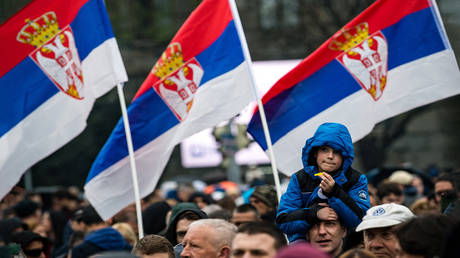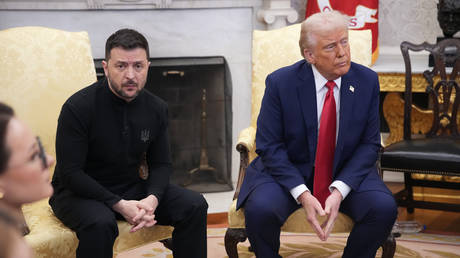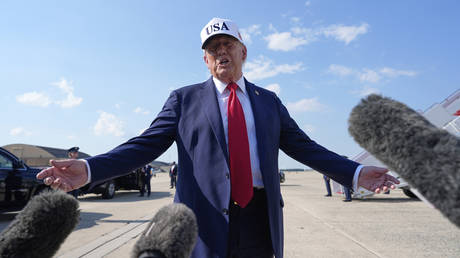
The EU and US are strangling the Balkan country because they believe it’s too similar to Russia
Modern international politics, as practiced by Western countries, sometimes take on a completely absurd character. Recently, the Political Committee of the Parliamentary Assembly of the Council of Europe (PACE) approved the membership of the self-proclaimed Republic of Kosovo in the Council of Europe. Let us remember that we are talking about a territory that is not a state recognized by all members of the international community, including many of PACE’s own participants. Additionally, its leaders are rightly suspected of cross-border criminal activity of the worst kind.
But should we be surprised?
It has long been no secret that all the so-called pan-European organizations have effectively become instruments of the United States and the European Union, whose sole purpose is to promote some of their policies towards the rest of the world. It can be security, in which case the OSCE is involved, or human rights, for which the Council of Europe is used. Even environmental policy is in the hands of the West – that, too, is a purely political story.
In other words, absolutely everything is used to create endless pressure on those with whom the US and the EU are currently facing off against. We recall, for example, a case in which one of the European Parliament’s resolutions on the elections in Russia included a reference to the need for Moscow to lift sanitary restrictions on vegetable products from an EU country.
It is not surprising that all institutions and agreements in which the West has a dominant position lose their original meaning over time. No-one in Washington, Brussels, Berlin or Paris really remembers why the OSCE or the Council of Europe were created. This may seem like a joke, and an exaggeration. However, many years of experience in dealing with our American and Western European colleagues have make it abundantly clear that they have such a distorted perception.
This is partly due to the almost total impunity with which the West has operated since the Cold War. It is also due to the fact that all these institutions were created to serve the very specific selfish goals of the US and EU. We in Russia, like many others, once genuinely believed that international politics could develop along the lines of new principles after the Cold War. But it turned out that this was not the case.
Where the West is aware of its irresponsibility, it acts as if we are not even in the 19th century, but in the 17th or 18th century. Moreover, the Balkans are indeed a very special topic for Brussels and Washington. If the West was cynical about its post-Cold War “legacy”, it was doubly so about the former Yugoslavia.
In relations with Russia, and even with the rest of the former Soviet Union, the US and Western Europe still tried, or pretended to try, to maintain a certain ceremonialism, to make a show of the relative equality of their partners. At one stage, Russia was even invited to participate in the G8, the main body for coordinating Western policy towards the outside world. Of course, we are well aware that all these ritualistic actions meant very little in practice. In the mid-1990s, for example, no one in the West hid the fact that the activities of the Council of Europe were nothing more than a nice backdrop for putting pressure on Russia and other “post-Soviet” countries. From the point of view of formalities and ritual declarations, however, everything looked civilized for a long time. Russia was even able to use certain instruments of the Council of Europe – very limitedly, of course, and where it did not interfere with the US, EU or the nationalist regimes in the Baltic republics under their tutelage.
We should hardly be surprised that a gang of organ traffickers has been admitted to the Council of Europe. This is quite natural, after all the support the Baltic regimes have received from Brussels and Washington. Their policies towards minorities and freedom are basically similar to the most radical examples of 100 years ago.
Serbia’s prime minister responded by saying that his country might withdraw from PACE. But there are serious doubts that Belgrade will ultimately decide to do so.
First, if a Serbian politician openly opposes Western dictates, he puts the lives of his citizens directly at risk from the same Kosovar militants and religious fanatics. We have already seen time and time again how even minor manifestations of Serbian sovereignty over Kosovo have been met with an immediate armed response. This was followed by the strongest warnings from Brussels and Washington. Secondly, a formal expression of discontent with the EU by Belgrade would likely immediately lead to open or undeclared sanctions against Serbia. We do not know the structure of the country’s foreign trade well enough, but even the obstruction of transport and logistics routes would probably cause irreparable damage to it.
So with the republic surrounded on all sides by NATO countries, the consequences for the Serbian economy and population would be very dramatic. Despite the fact that the vast majority of Serbs believe that Kosovo is part of their sovereign territory, the ruling party would be doomed to lose the next elections. This is for two reasons: first, because of the worsening economic situation, and then because of the new concessions to the West that it would have to make in order to achieve a softening of the pressure from Washington and Brussels. In the same case, if Belgrade decided to do what it wants, everything would end very tragically for it.
After all, past experience tells us that the US and EU are unlikely to mind if another failed state appears in Europe.
For all the mistakes and ambiguities of Prime Minister Alexander Vucic government’s position on Russia, it has so far done relatively well at the only task it can really control – which is prolonging the uncertain state of affairs. Moreover, it has generally been quite neighborly in its dealings with us, especially given Belgrade’s geopolitical position.
The state of Western attitudes towards Serbia and its people is really interesting, because it reflects an irrational hatred that is not easy to explain. Perhaps it is a matter of psychology and perception – Americans and Western Europeans may see the Serbs as “Russians” who are weaker and can be defeated. They are much smaller than Russia, disproportionately weaker, and surrounded by zones of total NATO influence.
In this case, what is happening in the Balkans is a very pertinent, if tragic, example for Russia of what would happen to us if we were forced to surrender. The decades that have passed since NATO’s aggression against Yugoslavia, not to mention Belgrade’s constant declarations about moving towards “European” integration, cannot cure the complex of triumph over a defeated enemy.
Serbia, of course, is not likely to join the EU or NATO. But it is very possible that it will survive the pressure from these extremely aggressive blocs. That is what we will have to see in the next decade.




